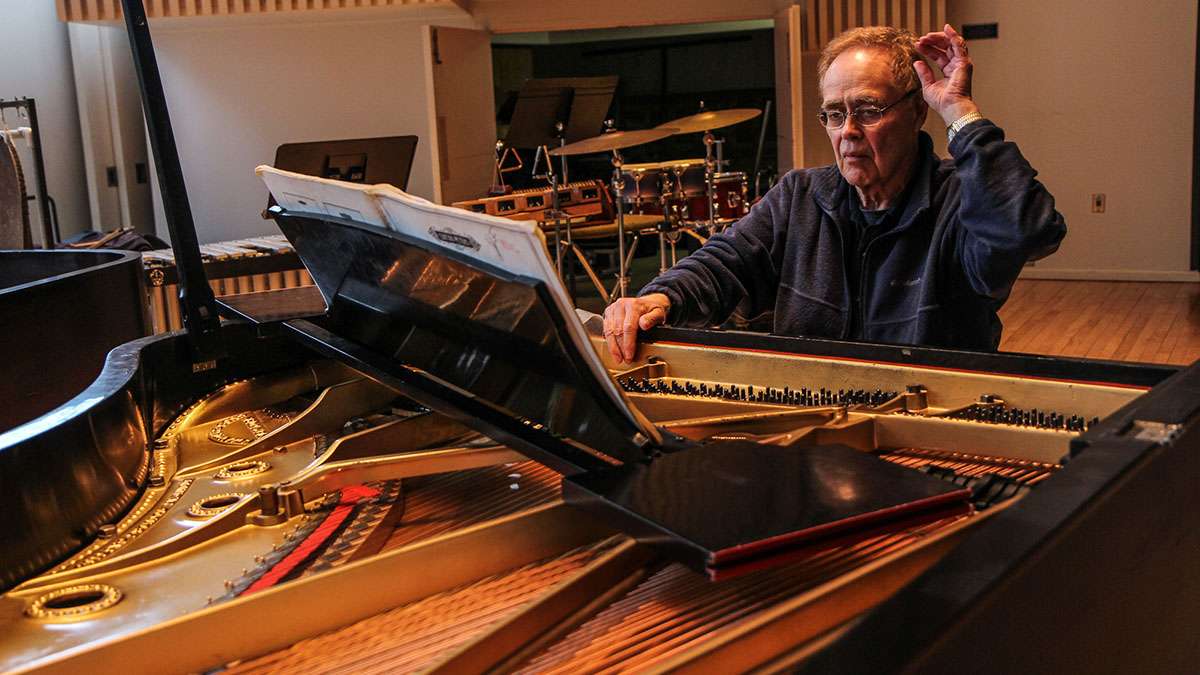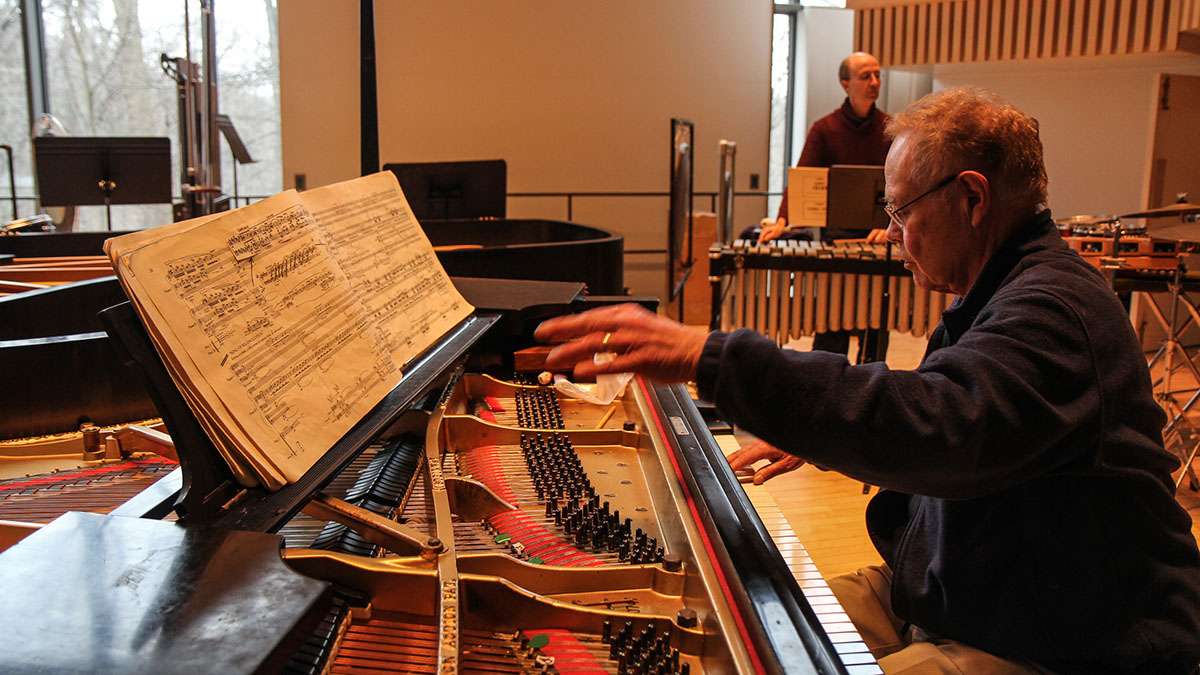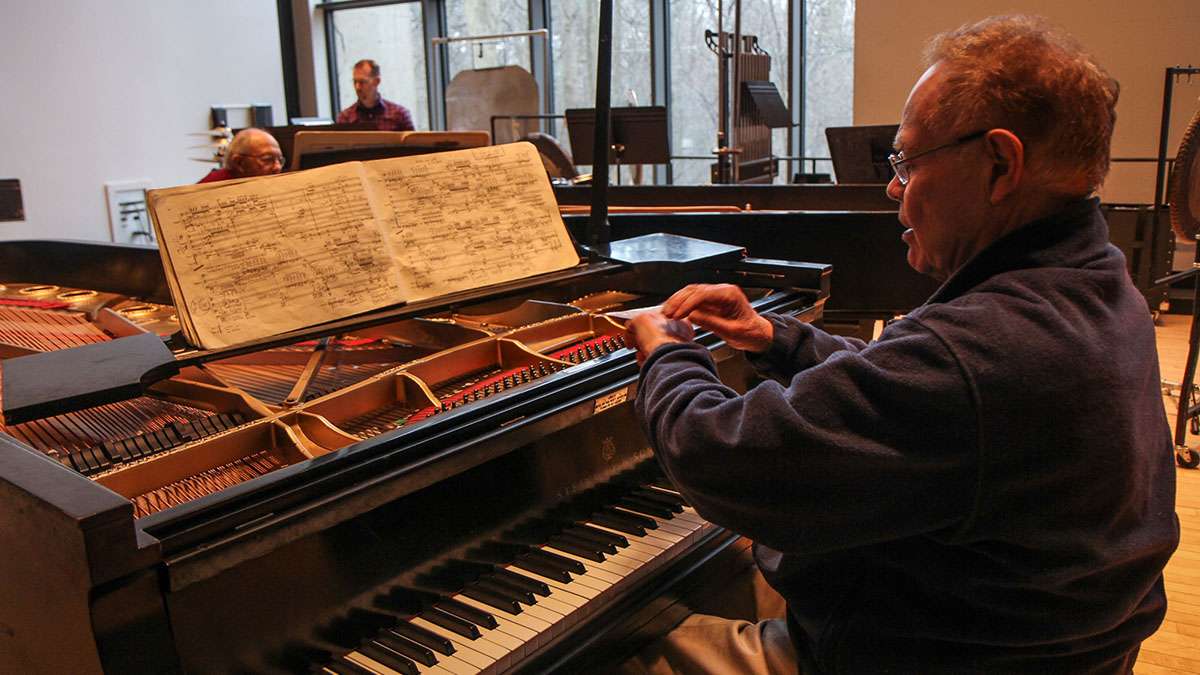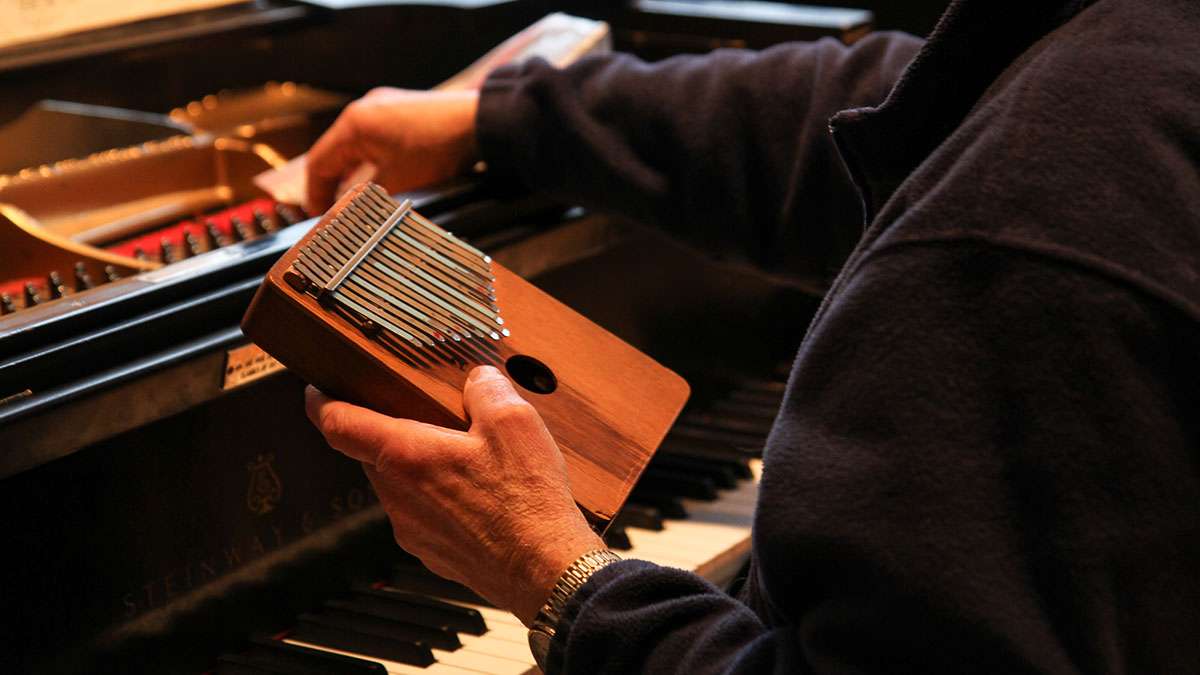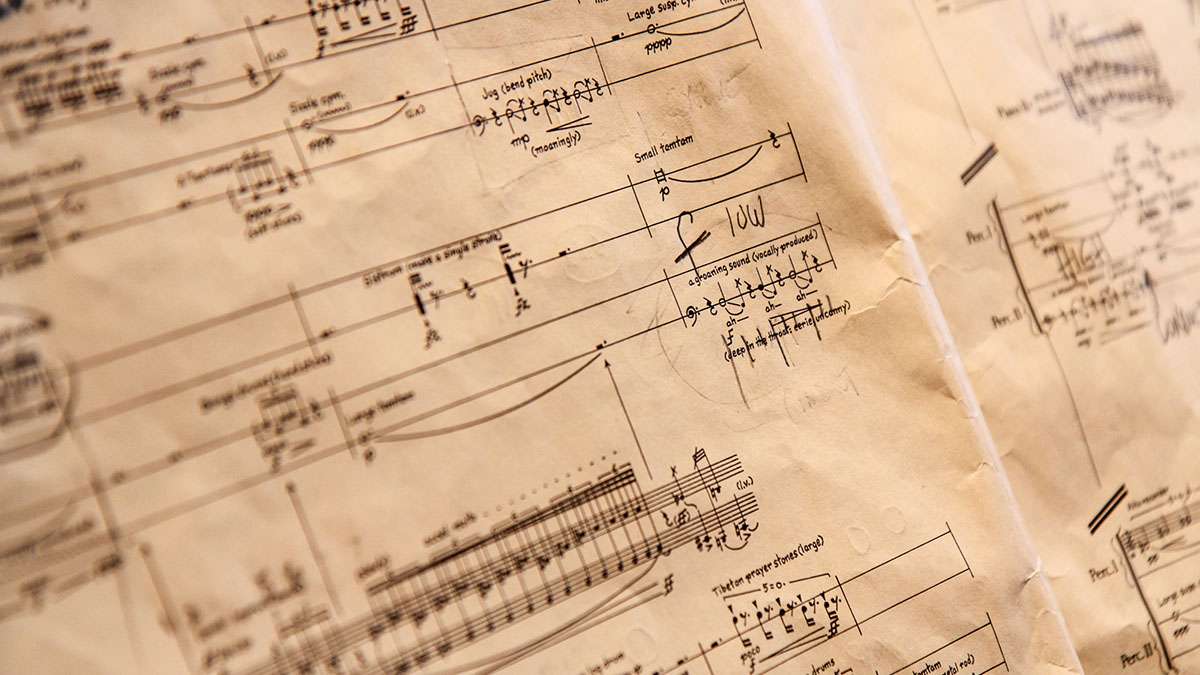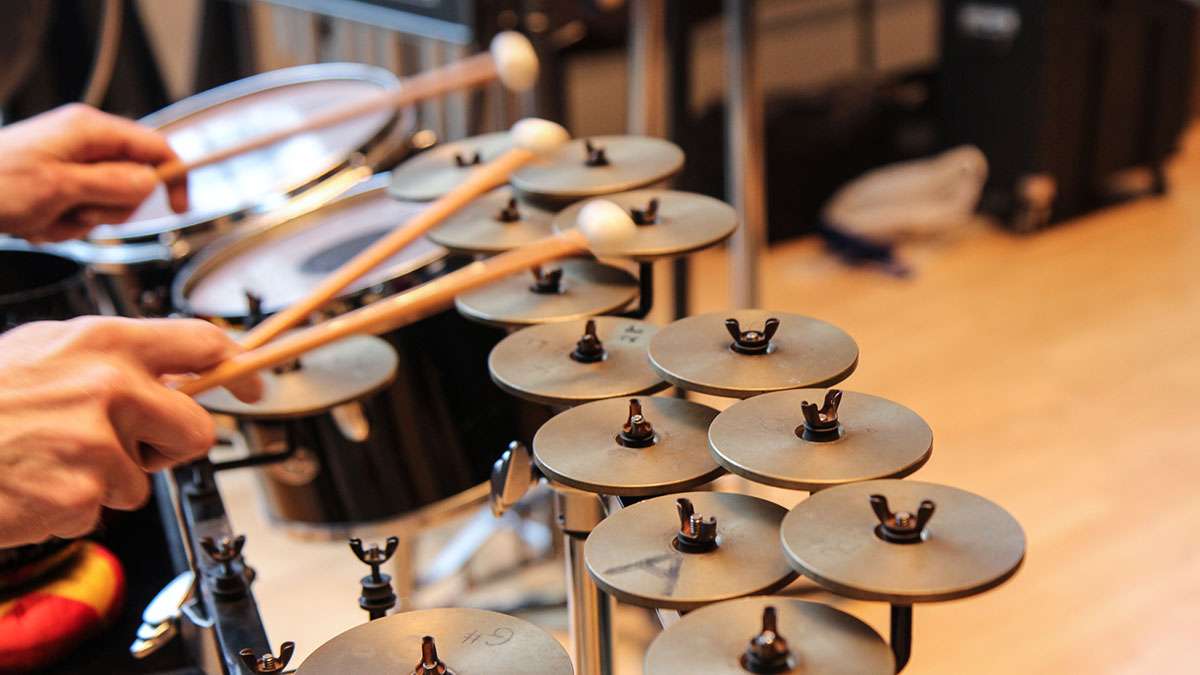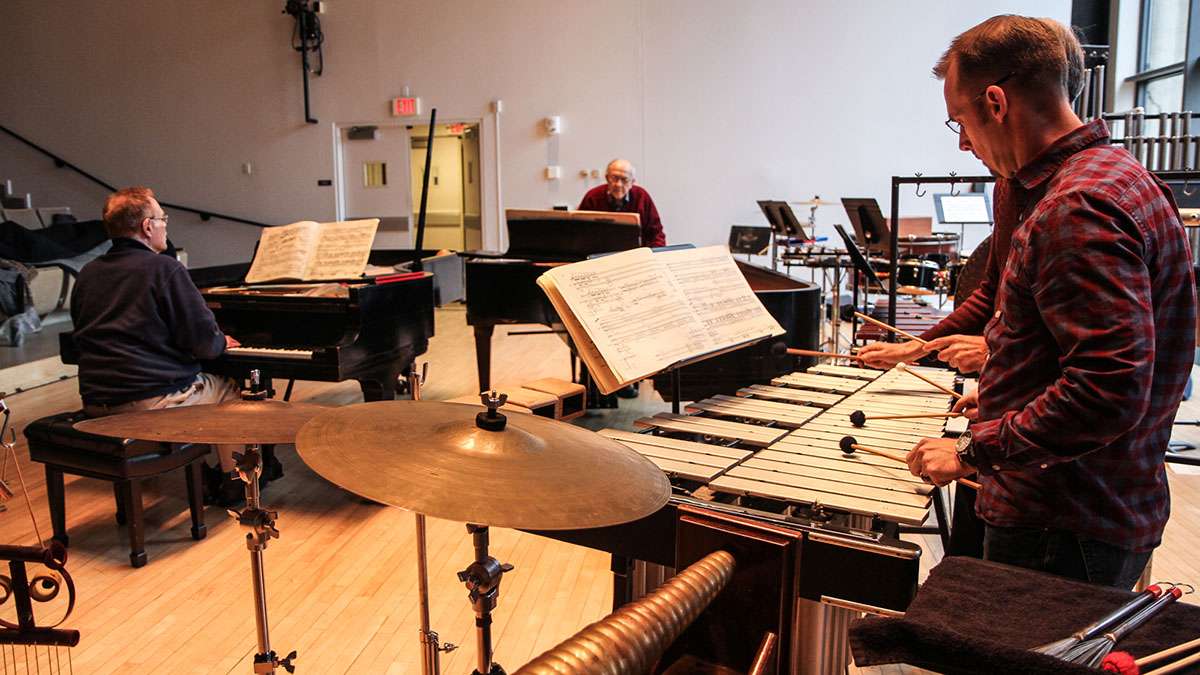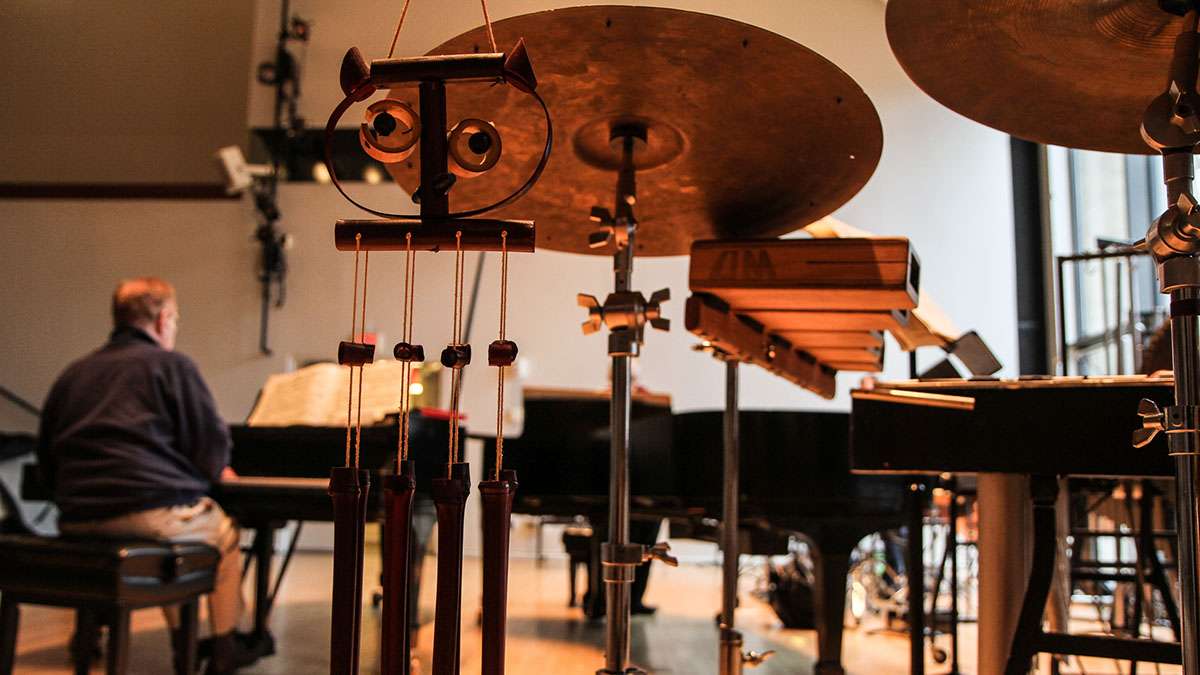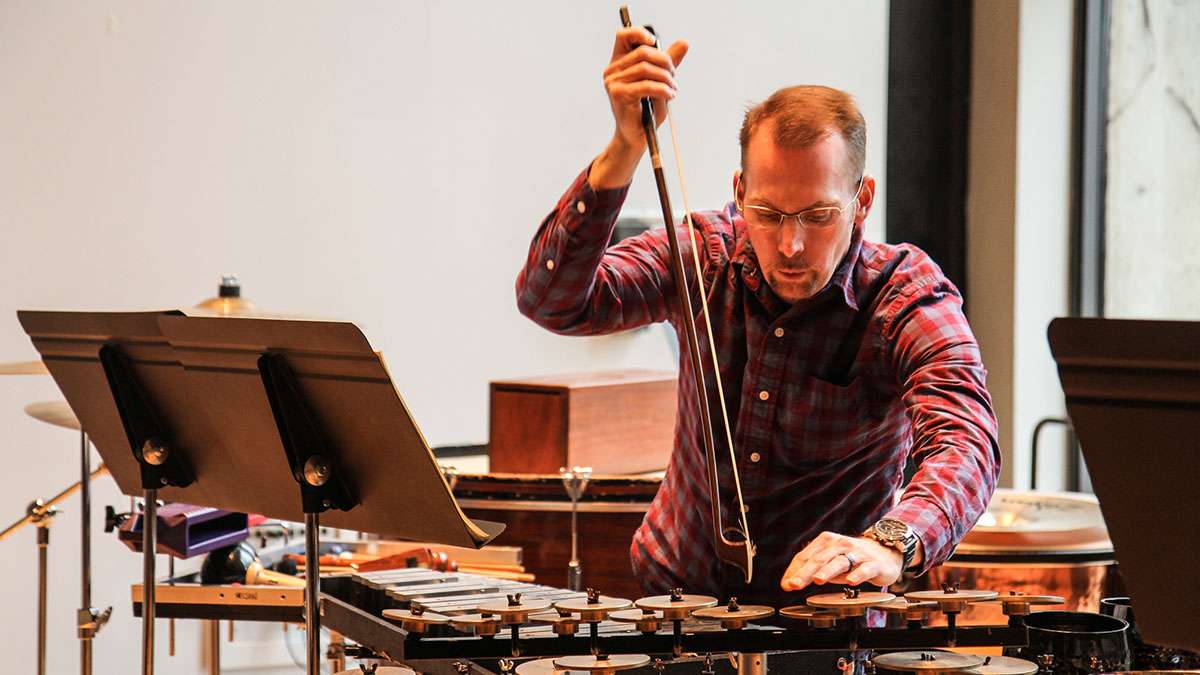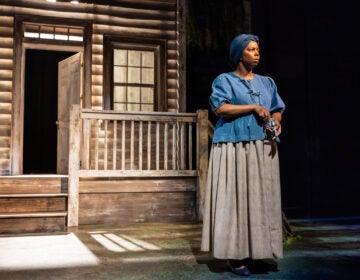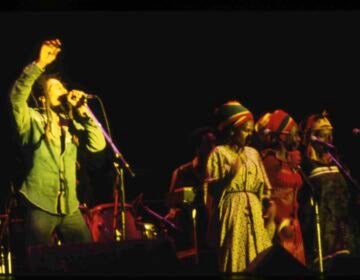An end, a beginning and a birthday — Orchestra 2001 salutes founder, composer [photos]
ListenA new chapter is commencing in Philadelphia’s new music world.
Orchestra 2001 is saying farewell to the man who founded it and gave the region a venue to experience contemporary and experimental music.
This weekend, the group will also celebrate the birthday of noted composer George Crumb.
George Crumb had so much trust in Orchestra 2001’s ability and talent to tackle his work, he composed seven pieces of his American Songbook for the group. Years before the orchestra came to be, he wrote the name of conductor Jim Freeman in the score for “Music for a Summer Evening.”
Freeman loved it from day one.
“I remember getting the piece — in 1974, in the mail — and I remember looking at it for the first time and my reaction was, ‘Oh my, God, this is an incredible and also very difficult piece,'” Freeman recalled.
Freeman founded Orchestra 2001 at Swarthmore College in 1988 to create a forum for new music at a time when contemporary composers had few showcases.
He likes to remind people that Mozart’s masterpiece, the Piano Concerto 271, had a long genesis.
“It took him 270 pieces, including nine operas, 30 symphonies and I don’t know how many string quartets … 25 string quartets … before he could write a piece that says, ‘Oh, that’s a great piece.’
“So we have to give new composers, today’s composers, we can’t give then 270 chances, but we have to give them as many chances as we can,” Freeman said.
Celebrated pianist Gilbert Kalish, who has been playing on and off with Freeman for about 40 years, said it takes a lot of courage — and risks — to do what Orchestra 2001 is doing.
“As in today’s music, you don’t know what you are going to get … but if you don’t do it, then it’s not done,” he said. “And then the fine, talented composers don’t get a chance to be heard.”
Kalish, a faculty member at New York’s Stony Brook University, is in the region to play one of Crumb’s masterworks. It’s an occasion to celebrate the composer’s 85th birthday as well as bid farewell to Freeman who intends to start a new group after 27 years at Swarthmore.
The masterwork they will perform is the same piece they played together in 1974.
It hasn’t gotten any simpler, Kalish said.
“George writes to the piano as nobody else has ever written, he demands you play inside the piano,” Kalish said. “It’s almost as if he’s invented another instrument, that the piano is double what it is … we have to mute the piano. We have to get harmonics out of the piano. We have to pluck the piano. We have to strum the piano. We even have to hit the piano.
“His imagination is tremendous.”
Crumb is famous for writing his scores in unconventional formats, said Freeman.
“Sometimes it’s a circle, sometimes it’s a cross or a peace sign, so you know the pianist has to memorize the piece,” he said.
For Freeman, this last concert with Orchestra 2001 is a way of coming full circle with his deep friendship and collaboration with George Crumb and with the many other musicians he encouraged, premiered and recorded.
Next year, his new orchestra will be commissioning works and tackling Mozart’s piano concertos. His years at Swarthmore have given him a new understanding for Mozart, he said.
“I go through every score, and I’ve done that more and more in my time at Orchestra 2001, very carefully, singing the viola part, singing though the second bassoon part — knowing every part,” Freeman said. “I never did that with Mozart before, it’s all there and it sounds beautiful. Looking at it Mozart piano concertos, I started doing that with them too.
“Like Crumb, in a way. Every note that the guy is writing is magical and is thought out so carefully, and that’s what I’m into,” Freeman said.
Orchestra 2001 performs “Crumb@85” Friday night at Swarthmore College and Sunday at the Curtis Institute.
WHYY is your source for fact-based, in-depth journalism and information. As a nonprofit organization, we rely on financial support from readers like you. Please give today.


